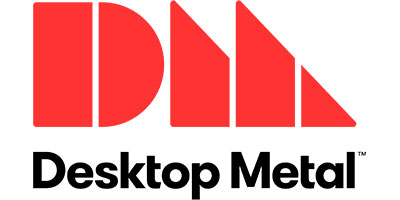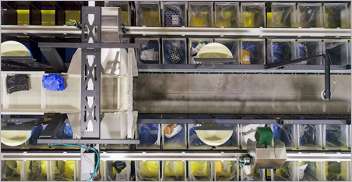Materialise announces support for Desktop Metal Binder Jetting technologies, including Desktop Metal’s Shop System and Production System platforms. This strategic partnership will help reduce the complexity for companies looking to scale their 3D printing operations, companies say. Materialise also continues to move toward improved machine connectivity by offering manufacturers more insight into the production process.
The partnership includes the introduction of a Desktop Metal Build Processor to support metal Binder Jetting technology for the company’s Shop System and Production System technologies. Materialise Build Processors are widely used in industrial printing, translating 3D designs into machine-specific build files for a variety of machines.
As part of the announcement, Materialise has also introduced sintering support generation for metal Binder Jetting as part of Magics’ SG+ module and metal Binder Jetting enhanced 3D nesting. This integrated solution, compatible with Materialise’s software suite, will help to create a better-connected workflow and improve productivity for metal Binder Jetting.
“Our partnership with Desktop Metal supports our next-generation Build Processor strategy to remove some of the remaining barriers to adoption of 3D printing as part of a connected, industrial manufacturing process,” says Stefaan Motte, vice president and Managing Director of Materialise Software. “Removing barriers of speed, scale and cost requires a closer integration between software and machine.”
Desktop Metal, a leader in mass production and turnkey additive manufacturing solutions, will make the Build Processor available as an add-on software offering with its advanced metal 3D printing solutions, the Shop System for mid-volume manufacturing, and the Production System for high volume mass production. Metal Binder Jetting is carving out a valuable share in the metal manufacturing market by offering specific production advantages, including cost efficiency, accuracy and speed. With its innovative approaches, Desktop Metal is changing the way engineering teams produce metal parts.
“From the start, Desktop Metal has set out to disrupt traditional metal manufacturing with innovative products and technologies,” says Arjun Aggarwal, vice president of Product and Business Development at Desktop Metal. “The combined strength of our metal 3D printing solutions with Materialise’s three decades of experience in 3D printing software and application development will help to accelerate the transformation of manufacturing with end-to-end metal 3D printing solutions.”
The Shop System is designed to bring metal additive manufacturing to machine and job shops with an affordable, turnkey solution that achieves exceptional surface finish parts with rich feature detail at speeds up to 10 times those of legacy powder bed fusion additive manufacturing technologies. Created by leading inventors of binder jetting and single-pass inkjet technology, the Production System is designed to be the fastest way to 3D print metal parts at scale.
The system is an industrial manufacturing solution designed to achieve speeds up to 100 times those of legacy powder bed fusion additive manufacturing technologies, enabling production quantities of up to millions of parts per year at costs competitive with conventional mass production techniques.
With the introduction of its Machine Connectivity Pack, as part of Materialise Streamics 8.2, Materialise says it is paving the way towards a more open market model by offering users actionable insights into their operations, allowing them to unlock the full potential of the technology.
“We believe access to build data is crucial to advance our industry and usher in a new era of industrial scale additive manufacturing,” says Stefaan Motte of Materialise. “That’s why Materialise has always advocated open connectivity standards. I am excited that leading machine vendors such as Desktop Metal, share our beliefs and support machine connectivity through open standards such as MT Connect and OPC-UA.”
About the Author
Press releases may be sent to them via [email protected]. Follow Robotics 24/7 on Facebook
Follow Robotics 24/7 on Linkedin
Article topics
Email Sign Up














